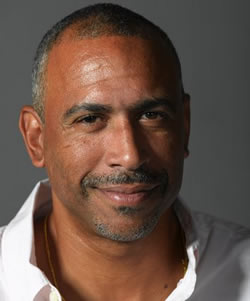LA charter debate offers opportunity to devise ways to ensure all schools succeed

The proposal by the Broad Foundation to significantly increase the number of charter schools in Los Angeles over the next 10 years is being discussed and scrutinized by policymakers and the general public. It should be. If approved by the school board, the proposal could radically alter the face of public education in Los Angeles. That is perhaps the only issue that both opponents and supporters agree upon.
While Los Angeles is currently the epicenter of the fight over charters, similar battles are being waged in cities throughout California and the country.
Yet, in the highly polarized debate over charter schools, many of the most important and complex issues do not receive the attention they warrant and deserve. In part, this is because the debate over charter schools is typically presented in unreasonably stark terms: advocates portray them as a panacea that will “save” public education; opponents characterize them as a Trojan horse that will be used to privatize and dismantle public education.
Close examination of charter schools reveals that the issues are more complex. Throughout the country, charter schools are incredibly diverse in their character and quality. Some find ways to limit access to disadvantaged children, or have been deliberately designed to segregate and serve the affluent, while others have been created with an explicit commitment to serve the most disadvantaged students. Some receive donations from wealthy philanthropists and spend considerably more per pupil than traditional public schools, while others are community-based and get by with considerably less. Some, like Green Dot, allow their teachers to form or join unions, while others actively oppose efforts at unionization.
Since charter schools are likely to be around for some time, the debate we should have over the Broad proposal, and the expansion of charter schools generally, is: what kinds of charter schools should be encouraged and what kinds should be avoided? Also, if we are serious about using charter schools as a lever to improve public education generally, what lessons should we draw from the best-performing charter and public schools and how can we make sure that these lessons are applied to public schools that serve our most disadvantaged children?
Answering both questions forces us to think more deeply about the role that policy, both local and state, should play in managing and regulating charter schools. To a large degree, the absence of thoughtful, well-conceived policy has contributed to the polarization we are witnessing in cities throughout the country. The absence of good policy is pitting parents, and in some cases teachers and students, against each other. This is not a good thing, and it limits the possibility of using charter schools as a lever for change in public education.
Charter school operators and their advocates and funders should not be expected or allowed to set admissions policies, nor should they determine where a charter school is located. However, because the controls on charter schools are weak, there are numerous cases where students perceived as hard to serve have been pushed out or excluded, where parents have been denied due process when grievances have been filed, and where the rights of teachers have been violated. There have also been several incidents of fraud and financial misconduct involving charter operators, particularly online and for-profit charters.
Furthermore, as those who have read “The Prize” by Dale Russakoff know, a great deal was promised when another wealthy philanthropist, Mark Zuckerberg of Facebook, donated lots of money ($100 million to schools in Newark – much of which went to consultants and charter schools) but not much was gained for the poorest children in the city. Transparency and accountability in the use of public and private funds are essential to avoid similar mistakes.
As Los Angeles citizens consider the merits and implications of the Broad proposal and the broader public weighs the prospect of allowing charter schools to expand, it would be helpful to reflect on what is presently working in public education and what role charter schools are playing on the educational landscape now. Los Angeles already has a greater number of charter schools than any other U.S. city; how have these schools affected the quality of public education in the city? Moreover, California has undertaken various versions of reform for several decades; what lessons should we extract from these costly endeavors that might help us in guiding future efforts to improve schools?
During the 1980s, George Washington High School in Los Angeles Unified was regarded as an unsafe, dysfunctional school. Under the leadership of former principal (and current board member George McKenna), the school was renamed George Washington Prep, the community was engaged so that gangs no longer posed a threat to students and the school, high-quality academic programs were added, and academic achievement increased so significantly that the school became one of the most consistent producers of African-American students who were eligible for admission to the University of California.
Similar achievements were obtained at Kennedy High School in Richmond during the same period. However, today, neither Kennedy nor LA charter debate offers opportunity to devise ways to ensure all schools succeed | EdSource:
